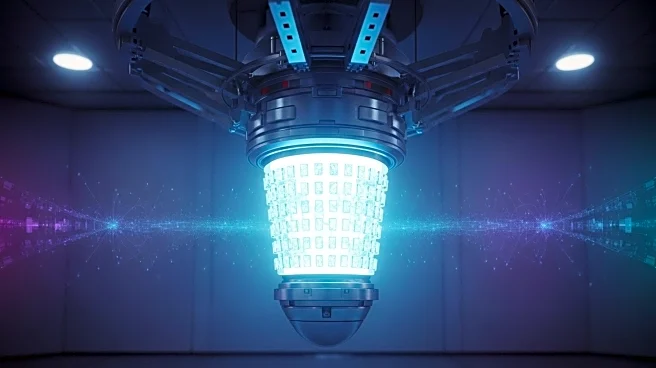What's Happening?
Fusion power startups have been attracting significant investment, with several companies raising over $100 million each. This surge in funding is driven by advancements in computer chips, artificial intelligence, and high-temperature superconducting magnets, which have improved reactor designs and simulations. Notably, Commonwealth Fusion Systems has raised nearly $3 billion, while Helion and TAE Technologies have also secured substantial investments. These companies are working towards developing commercially viable fusion power plants, aiming to harness nuclear reactions to generate limitless energy. The U.S. Department of Energy's recent breakthrough in controlled fusion reactions has further bolstered investor confidence in the sector.
Why It's Important?
The influx of investment into fusion startups signifies a growing belief in the potential of fusion energy to revolutionize the energy sector. Fusion power promises a clean, virtually limitless energy source, which could significantly reduce reliance on fossil fuels and mitigate climate change impacts. The successful commercialization of fusion technology could disrupt trillion-dollar energy markets, offering a sustainable alternative to current energy sources. As these startups progress towards operational fusion reactors, they could play a crucial role in shaping the future of global energy infrastructure.
What's Next?
As fusion startups continue to advance their technologies, the focus will be on achieving commercial breakeven, where the energy output exceeds the input. Companies like Commonwealth Fusion Systems and Helion are targeting operational reactors within the next few years, with plans to begin construction on commercial power plants. Regulatory approvals, technological challenges, and continued investment will be key factors influencing the timeline and success of these projects. The potential for partnerships with energy companies and governments could also accelerate the deployment of fusion energy solutions.











